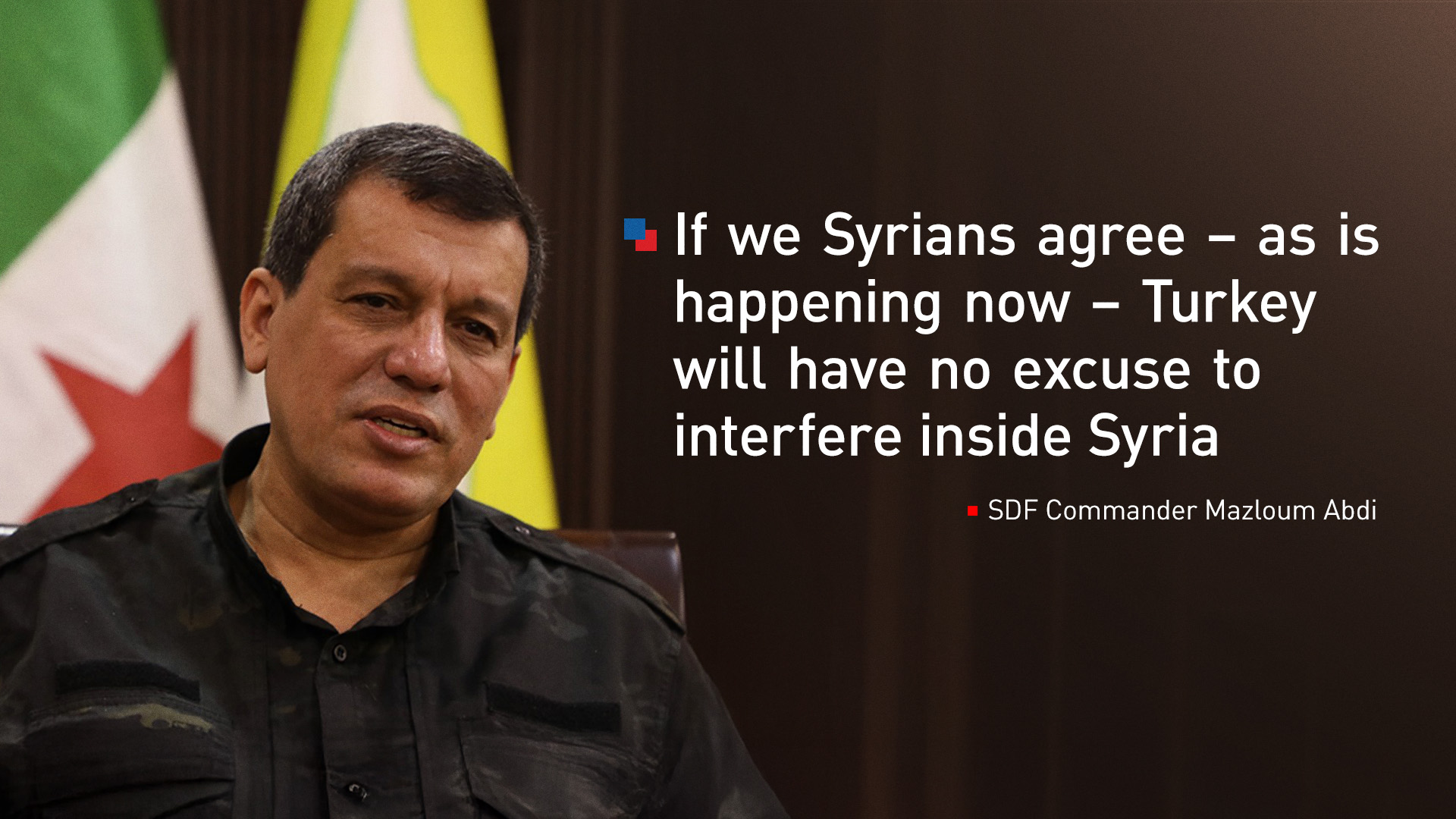Mazloum Abdi Announces Agreement to Merge Kurdish-Led Forces into Syrian National Army
“We are talking about tens of thousands of soldiers and internal security forces,” Abdi told The Associated Press, adding that the forces would be incorporated “according to the rules of the Defense Ministry.”

ERBIL (Kurdistan24) — The Syrian government and the Kurdish-led Syrian Democratic Forces (SDF) have reached an agreement in principle to integrate the U.S.-backed force into the national army, marking a major breakthrough after months of stalled negotiations.
SDF Commander Mazloum Abdi said Thursday that both sides had agreed on a “mechanism” allowing the SDF to join the army as cohesive units rather than as individual soldiers. “We are talking about tens of thousands of soldiers and internal security forces,” Abdi told The Associated Press, adding that the forces would be incorporated “according to the rules of the Defense Ministry.”
The deal follows months of uncertainty after Syria’s new interim leadership, headed by President Ahmad al-Sharaa, signed a power-sharing agreement with the SDF in March. The new government came to power after insurgent groups led by Hayat Tahrir al-Sham (HTS) ousted former President Bashar Assad in December, ending five decades of Alawite rule.
Abdi said a joint committee has been formed with Damascus officials to finalize the merger process and determine the future roles of SDF commanders, many of whom are expected to receive senior posts in the Defense Ministry. He emphasized that the SDF’s extensive experience fighting the Islamic State group would “strengthen the Syrian army.”
In addition to military integration, the SDF’s internal security forces will also merge with Syria’s national police, and all civilian and economic institutions in the northeast (Western Syria) will come under central government authority.
Abdi described the agreement as a path toward national reconciliation after 14 years of civil war that killed nearly half a million people. He said full implementation could prevent future sectarian violence and promote equality among Syria’s diverse communities.
The Kurdish commander also called for a decentralized political system that shares power between the central government and provincial administrations, a proposal that has long concerned Damascus.
Abdi voiced cautious optimism regarding Turkey’s response, noting “some flexibility” in Ankara’s stance. “If we Syrians agree — as is happening now — Turkey will have no excuse to interfere inside Syria,” he said.
If implemented, the agreement would mark the first major step toward unifying Syria’s fractured military forces under the country’s new leadership.